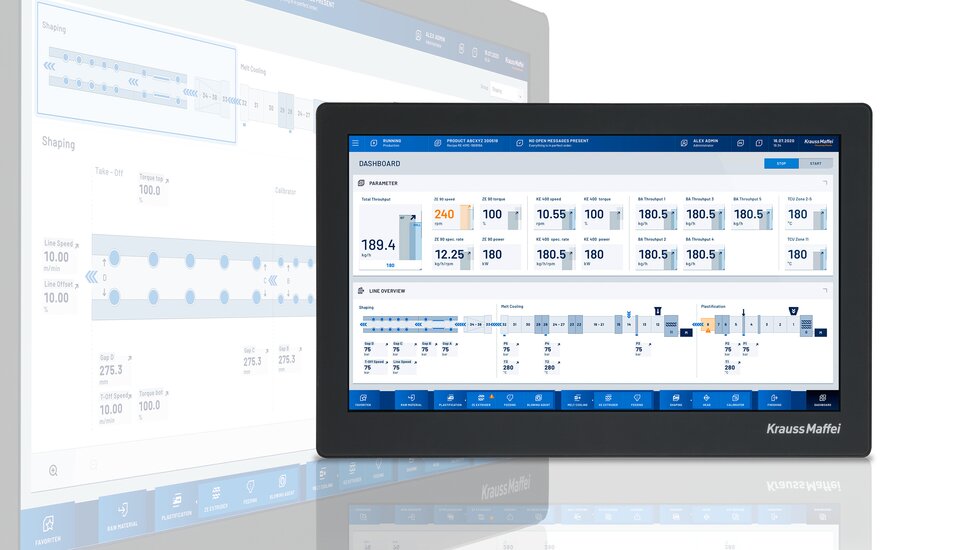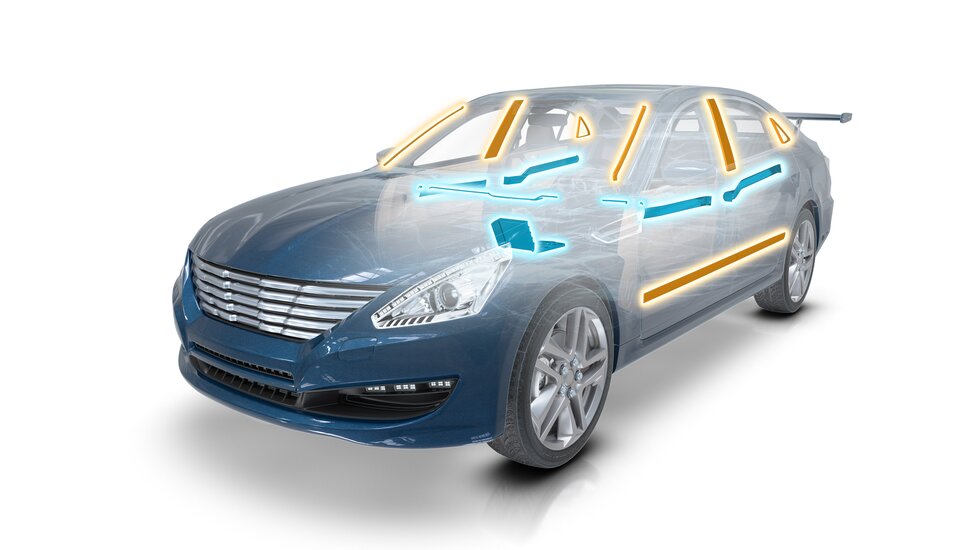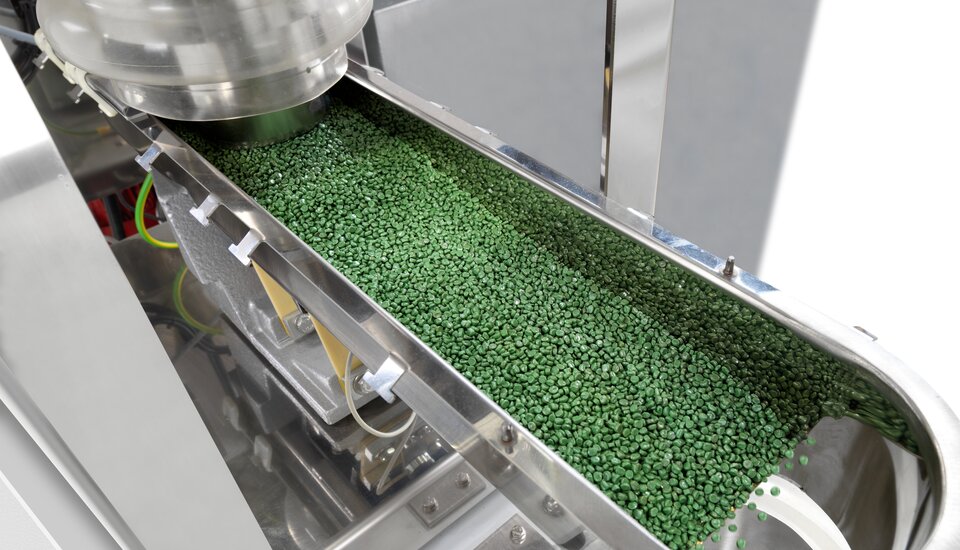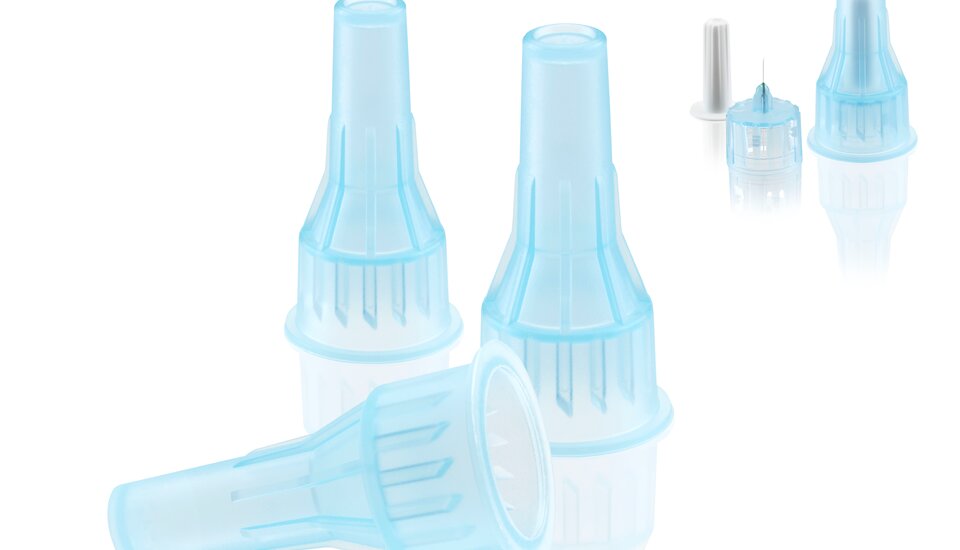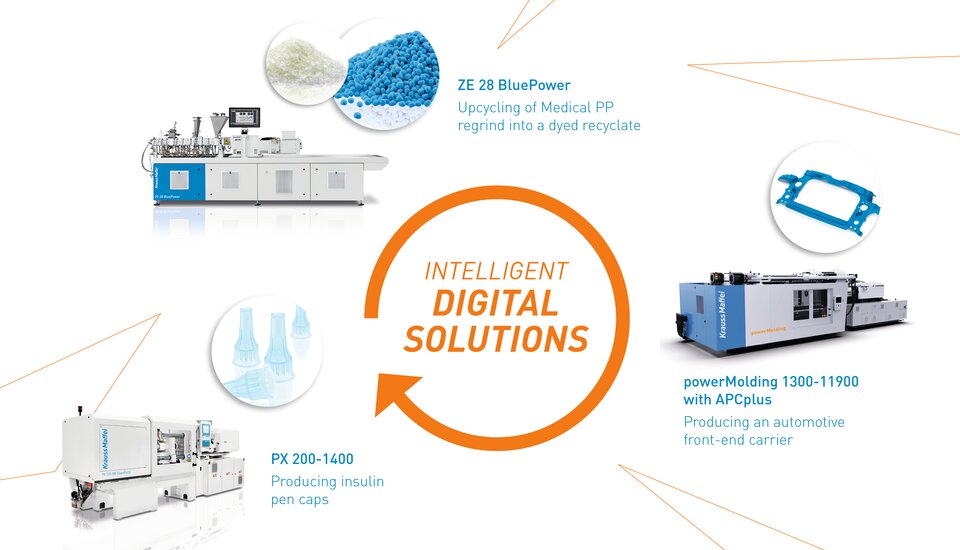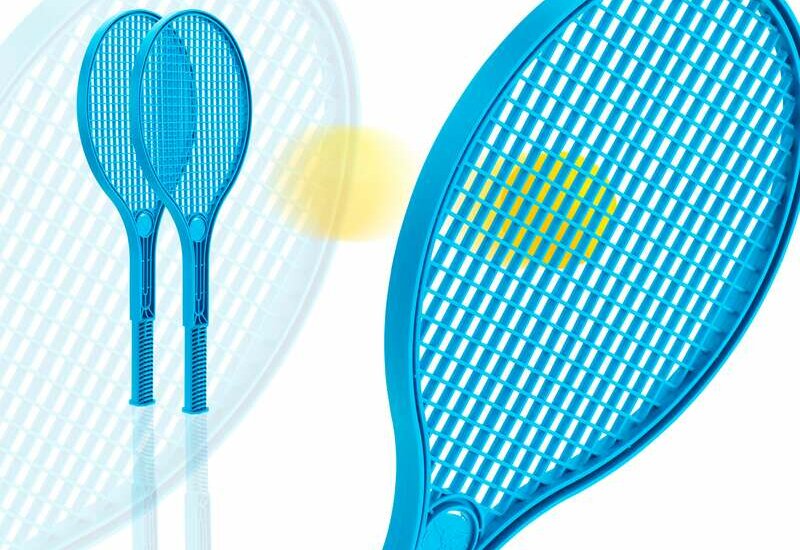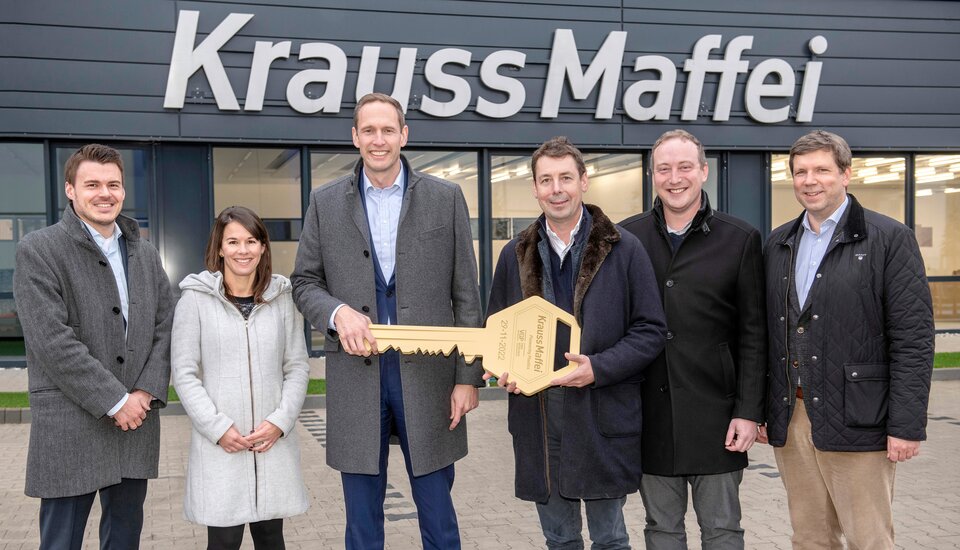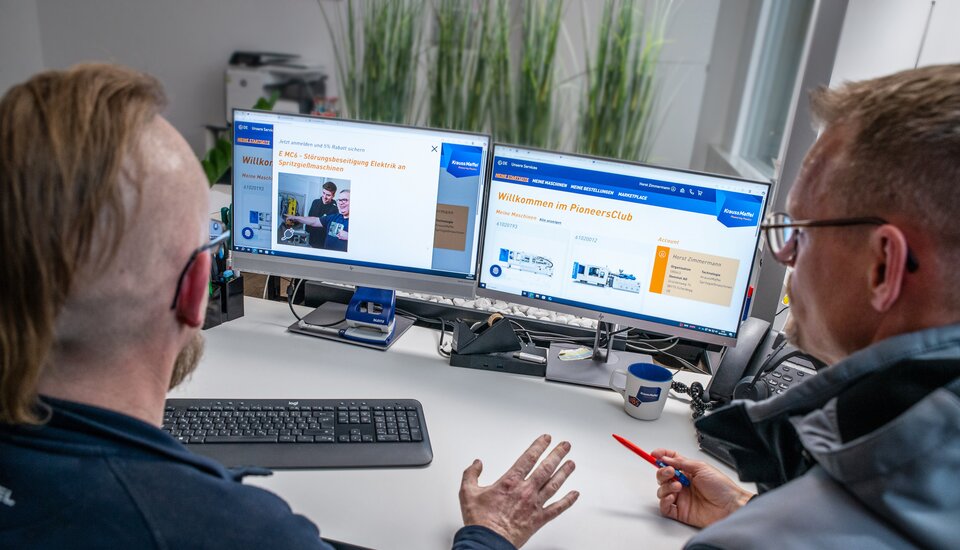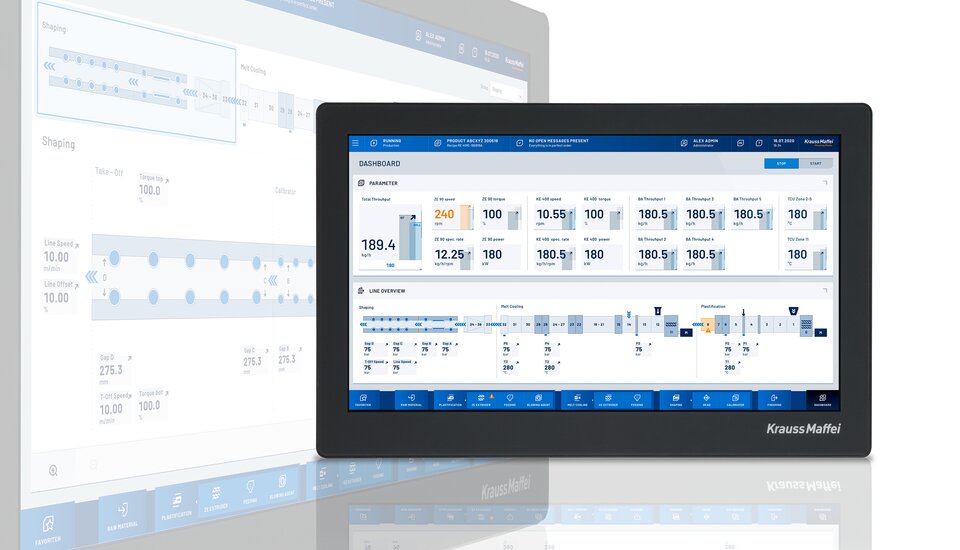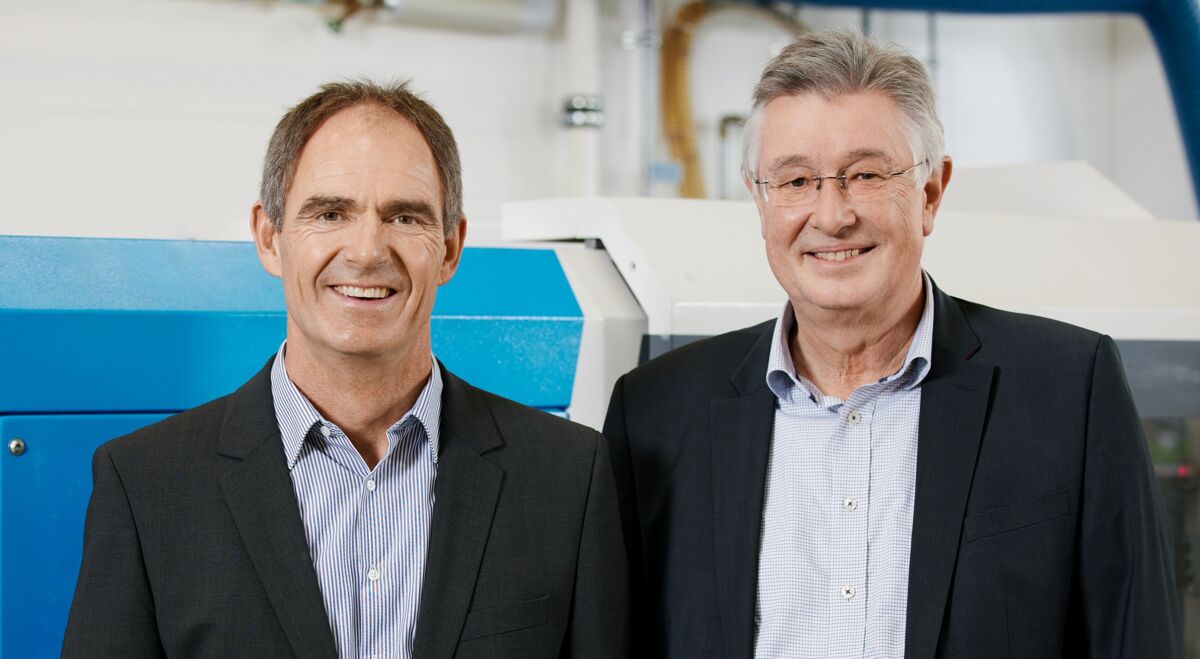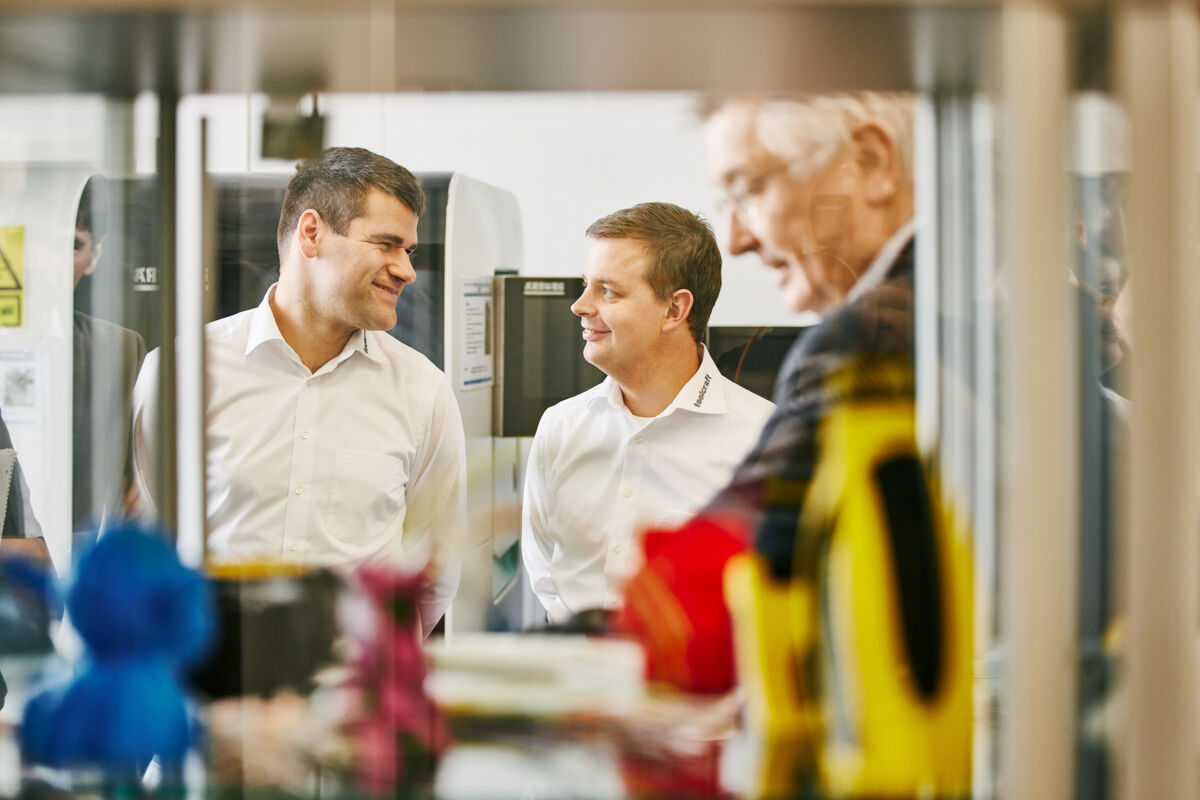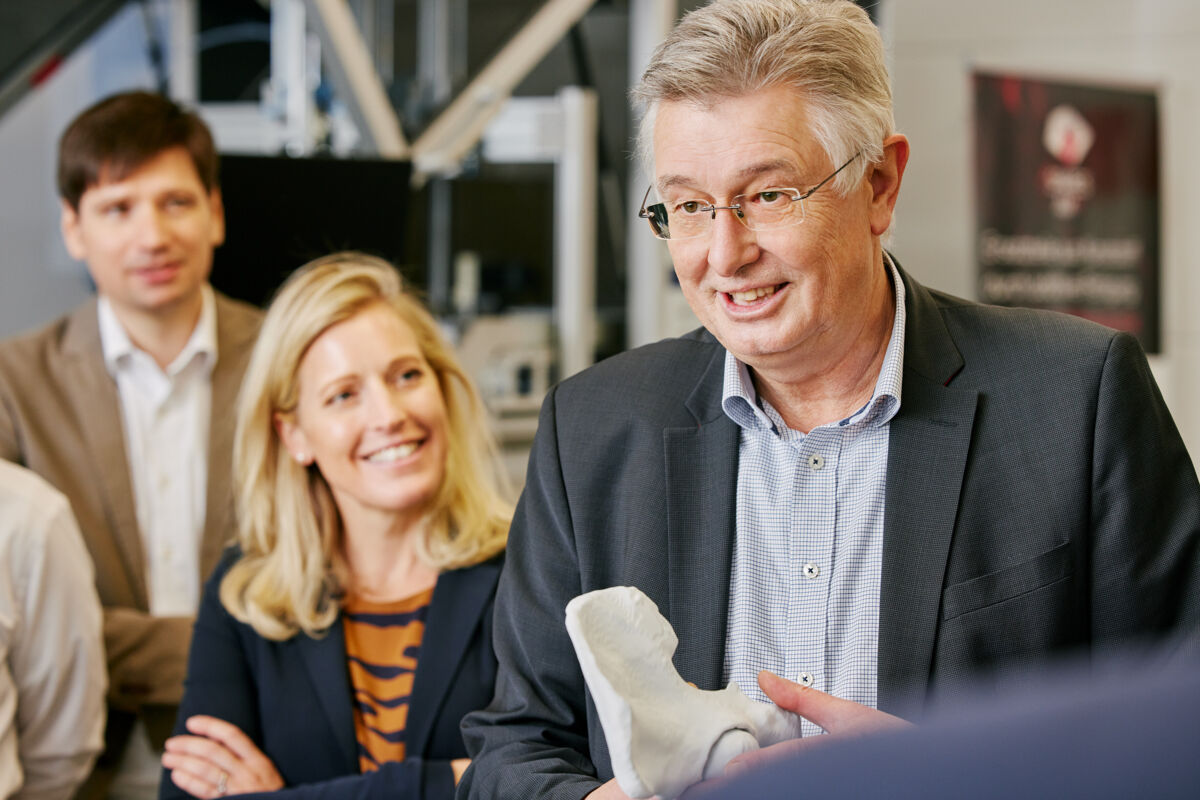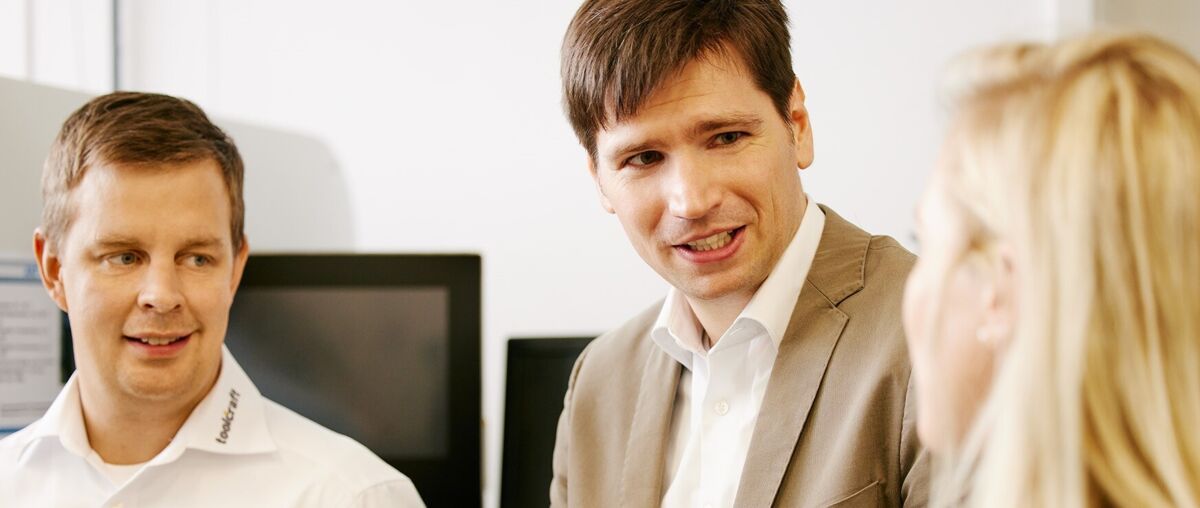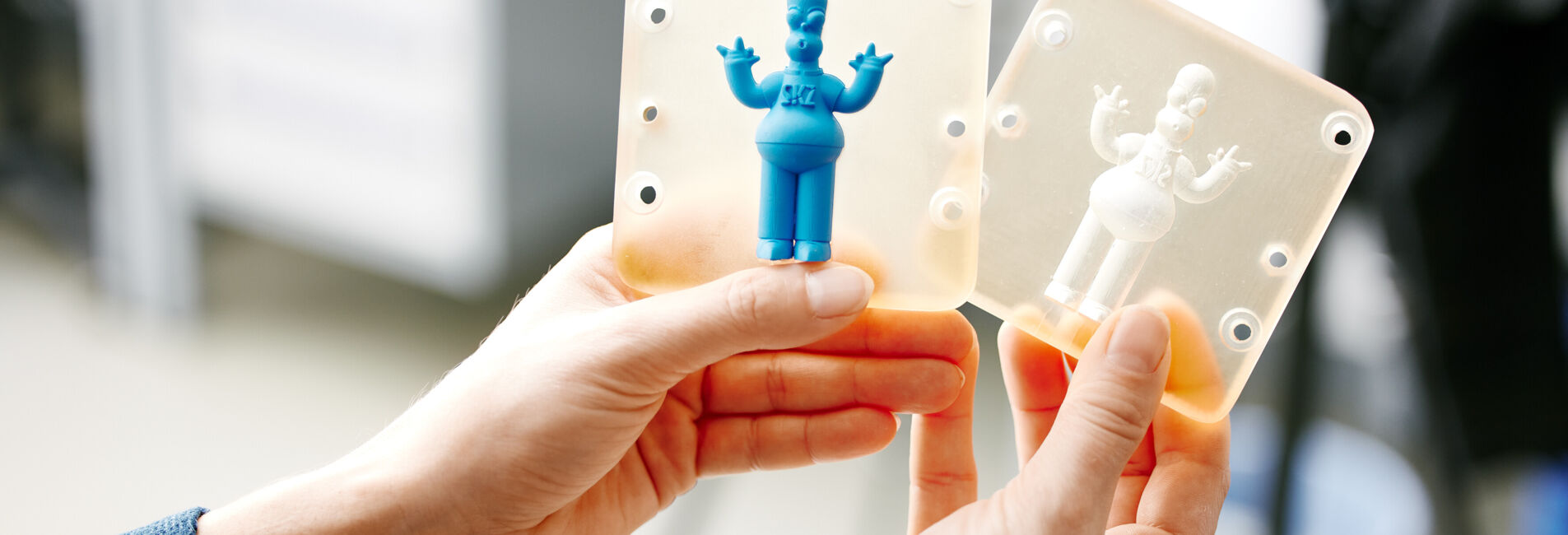
Partners & Projects
Triple-win situation for liquid silicone rubber
| Petra Rehmet
SKZ and Toolcraft join KraussMaffei in LSR technology
For many years, liquid silicone (LSR) had a reputation as being a difficult material that was only for specialists and incompatible with conventional thermoplastic processing. Despite this, more and more companies are discovering this interesting material. SKZ (The Plastics Center, Würzburg, Germany) and Toolcraft (Georgensgmünd, near Nuremberg), an innovative expert in the field of precision components, are collaborating to explore the possibilities and limits. KraussMaffei is playing a large part in this endeavor as a machine partner.
"If you can think of it, you can do it", is the slogan of Bernd Krebs, founder of Toolcraft. Since 1989, widely disparate areas have developed in which the company is active. Among them are metal cutting, additive manufacturing, and robotics as well as injection molding and moldmaking. The team uses the wide variety of available methods to present solutions – occasionally unusual ones – to customers. Toolcraft has often adopted new technologies from scratch, so introducing silicone certainly does not faze them.
SKZ, in turn, is number one in education, research, testing and certification in the plastics field. In addition to SKZ's many other industry-relevant events, the renowned industry conference on silicone elastomers takes place every two years. To date, however, SKZ had not had an LSR processing machine on its own premises. The topic was increasingly under discussion as a result of increasing electromobility with its high underhood temperatures and the increasing importance of elastomers in medical technology.
Win-win situation for all three partners
When KraussMaffei received the inquiries from Toolcraft and SKZ for LSR machines at around the same time, it soon became clear that a "triple-win" situation was within reach. All those involved sat down to confer: SKZ Institute head Prof. Martin Bastian and Georg Schwalme, Head of the Injection Molding area at SKZ, Thomas Lender (Head of Injection Molding) and Markus Scheuerlein (Moldmaking Project Manager) of Toolcraft as well as Frank Burkhardt (Local Sales) and Cordula Wieland, Expert Sales TEC and Silicone Processing Expert at KraussMaffei.
Valuable support was also provided by Nexus, a company that brought its experience in metering technology to the table. Because all parties involved are based in Bavaria, it is even possible to obtain state-specific subsidies for research projects.
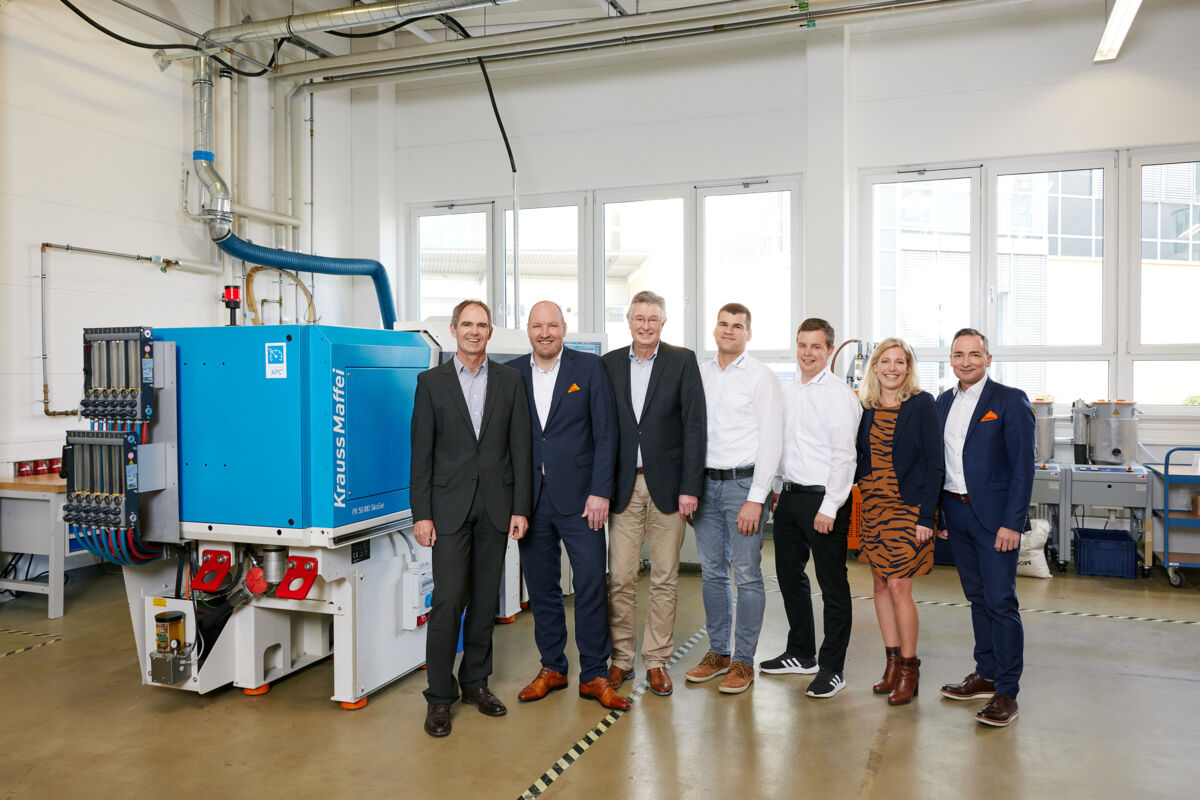
Top team for venturing into the world of LSR (from left):
Prof. Martin Bastian (Head of the SKZ Institute), Frank Burkhardt (Local Sales KraussMaffei), Georg Schwalme (Head of Injection Molding Area at SKZ), Markus Scheuerlein (Moldmaking Project Manager at Toolcraft), Thomas Lender (Head of Injection Molding at Toolcraft), Cordula Wieland (Expert Sales TEC at KraussMaffei) and Christian Rössler (Head of Sales - South at KraussMaffei).
As a result, SKZ can help its fellow network member, Toolcraft, with targeted analyses when implementing the new technology – while at the same time acquiring the expertise to provide customers with well-founded advice to spearhead innovative developments. The launch took place at a two-day training session held by the Plastics Technology department at the University of Kassel. "Our colleagues there are outstanding and being able to interact with them is extremely valuable to us," says Bastian. Schwalme adds, "Once we have mastered the process itself, we will be able to collaborate with others – just as we did with thermoplastics. This collaboration will include everything from basic research to practical aspects on the shop floor."
One all-electric PX for SKZ and one for Toolcraft
The two all-electric KraussMaffei machines have now reached their destination: a PX 50-180 SilcoSet at SKZ and a PX 121-180 SilcoSet at Toolcraft. This is where being an owner-managed medium-sized company is a great advantage. The company has the independence to make an investment that might not yield an immediate return.
"Theoretically we are at 100 percent capability with silicone, but we are practically still at zero. We think it will take about two years for us to master the technology, but we are just going to go ahead and take this time to do just that."Thomas Lender, Head of InjectionMolding at Toolcraft
One of the reasons Toolcraft gave the nod to KraussMaffei as machine partner was the people involved. "From the beginning, you made us feel welcome and that we were being taken seriously. And the expert support from Cordula Wieland is priceless."
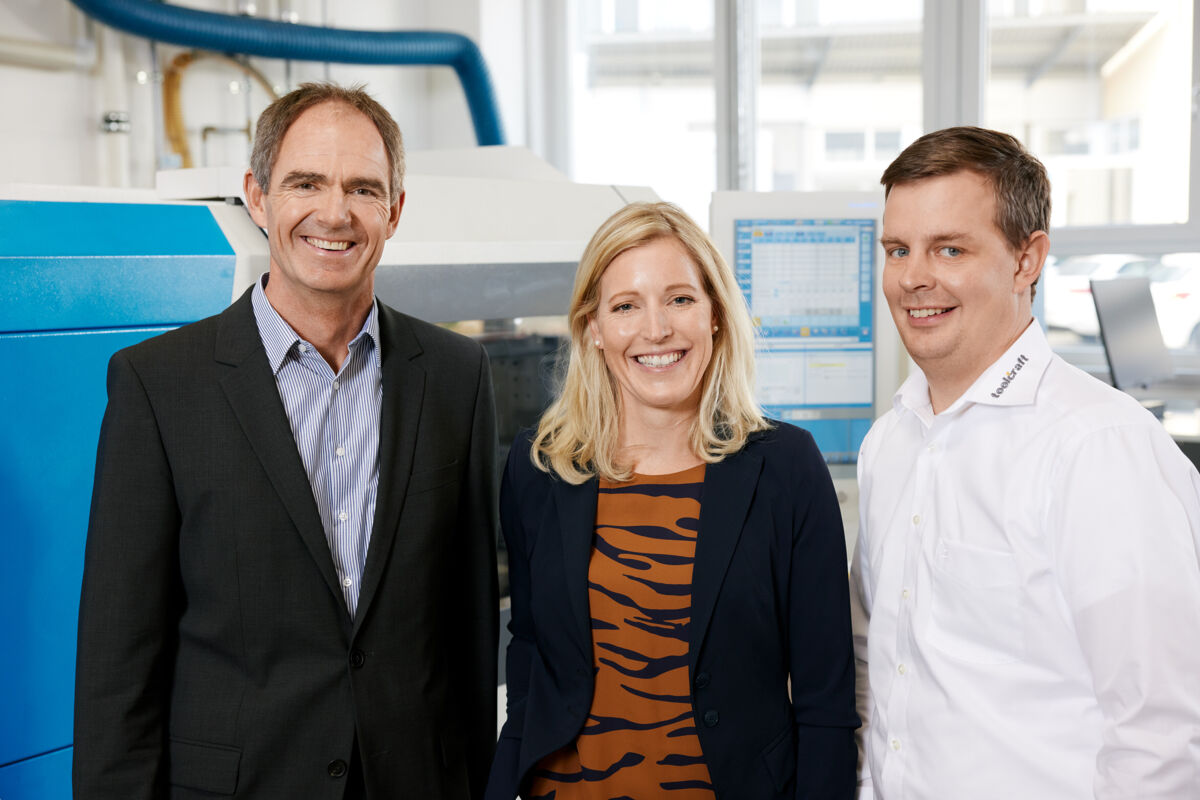
The three key figures (from left):
Prof. Martin Bastian (Head of the SKZ Institute), Cordula Wieland (Expert Sales TEC KraussMaffei), Thomas Lender (Head of Injection Molding at Toolcraft).
Enclosed PX 121 for cleanroom applications
Toolcraft's thorough approach to the project is evident in the fact that the PX 121 stands enclosed in a hall that will later be upgraded to a Class 7 cleanroom. The machine features a slight increase in clamping force and plasticizing volume as well as broader mold clamping platens for maximum flexibility. In LSR, the residence time in the plasticizing unit is not as critical as it is for thermoplastics. Therefore, a relatively large machine can produce very small products and the enlarged stroke of the clamping unit pays off because the molds have a deeper structure due to the cold runner and the insulating plates.
The APC plus machine function will help to give the products a high weight consistency. It uses the melt viscosity and stored material parameters to regulate the changeover point freshly from shot to shot. For silicones, this is important insofar as the batch fluctuations are much more dramatic than for conventional thermoplastics.
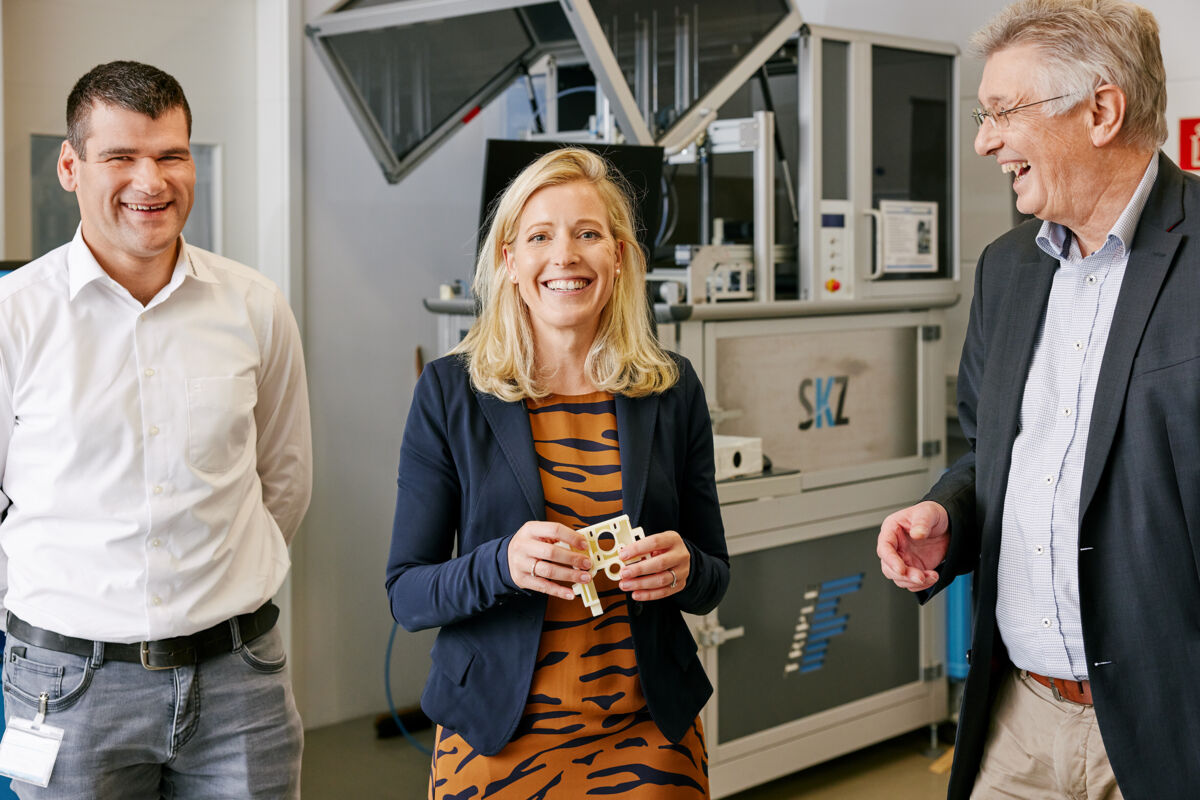
Lively discussions
were the hallmark of the three-way meeting between SKZ, Toolcraft and KraussMaffei held to mark the beginning of LSR processing: Markus Scheuerlein, Cordula Wieland und Georg Schwalme (from left)
First LSR project for medical technology
As the first LSR project, Lender and Scheuerlein selected a plug with a part weight of 0.5 grams that can be used in medical technology. To date, these have been produced from solid silicone (HTV). There are relatively few types of this material that are approved for medical uses, making the switch to LSR an attractive option.
However, the latter has very low viscosity, which makes moldmaking extremely difficult. At a water-like consistency, the molds have to be perfectly sealed. Usually, a vacuum is even applied. The temperature control is the reverse of that used for thermoplastic processing to prevent premature wetting. While the plasticizing unit as well as the cold runner are cooled, the cavity is brought to a temperature of approximately 190 °C.
To date, most mold production for LSR has been in the hands of highly specialized providers centered regionally in Austria. However, because these providers are increasingly manufacturing silicone parts themselves and, furthermore, the prices for molds and cold runners are relatively high, more and more companies are looking for alternatives.
Toolcraft is also going to build its own tooling, drawing on its in-house experience with precision molds. Currently, about 50 percent of what Scheuerlein's team produces is for its own use, with the other half going to customers. Of course, plans call for offering LSR molds to external customers in the future.
Support to the last detail
SKZ will receive internal and external help in the coming trials. A training manager at the SKZ location in Horb (in the Black Forest region) got his start in the silicone processing industry, an ideal set of circumstances. Despite this, Cordula Wieland, the KraussMaffei expert for thermoset plastics, is able to supply plenty of tips and tricks.
One such "hack" is the recommendation to purchase a chest freezer. Particularly in the experimentation phase – where a few weeks might pass between steps – freezing the unit in the meantime saves a good deal of work.

One of the SKZ's strengths is in the area of additive manufacturing –
this technology is ideal for moldmaking in the LSR area due to its intricate possibilities and excellent transparency.
The top team from SKZ and Toolcraft will pave its way forward with support from KraussMaffei. We will follow up in two years.
